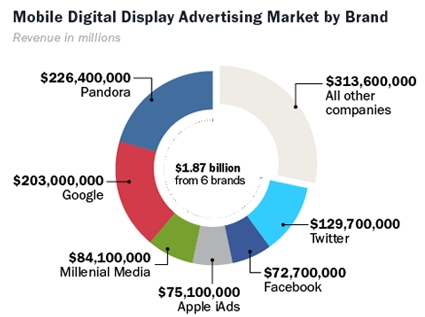The Pew Research Center’s Project for Excellence in Journalism paints a dismal picture regarding the transformation of American news media. The Center describes “a news industry that is more undermanned and unprepared to uncover stories, dig deep into emerging ones or to question information put into its hands” than any time in recent history. Among the findings:
- Sports, weather and traffic now account on average for 40% of content
- Newsroom cutbacks in 2012 put the industry down 30% since its peak in 2000
- Some media outlets, such as Forbes magazine, use technology by a company called Narrative Science to produce content by way of algorithm
- Media campaign reports were primarily megaphones, rather than investigative journalism
In response to the declines, the Center reports, “nearly a third of U.S. adults, 31%, have stopped turning to a news outlet because it no longer provided them with the news they were accustomed to getting.”
 There is some financial restructuring of the industry as well. In most cases, however, the restructuring moves revenue away from news media and towards aggregators such as Google and Facebook. Economically this is another situation where the company providing the conduit for content receives the revenue rather than the individuals and companies providing the actual content. The other good news is the slight increase in Sunday newspaper subscriptions and the end to the decline in overall newspaper sales.
There is some financial restructuring of the industry as well. In most cases, however, the restructuring moves revenue away from news media and towards aggregators such as Google and Facebook. Economically this is another situation where the company providing the conduit for content receives the revenue rather than the individuals and companies providing the actual content. The other good news is the slight increase in Sunday newspaper subscriptions and the end to the decline in overall newspaper sales.
In total, however, the report makes clear that while there is more information than ever before, there is less in-depth news coverage.
In a report published last year, the Pew Center reported found that “for every $1 newspapers were gaining in digital ad revenue, they were losing $7 in print advertising” and the gap grew to $16 in print losses for every digital dollar gained by the end of the 2012. Some papers are returning to pay walls to offset the losses; others are accelerating their cost-cutting in print and reporting expenses to pay the gap.
While digital revenues continue to grow, the income is not fueling journalism. Instead, it pays for mobile devices, social media and search. While each of these has benefits, journalism has a uniquely important role in society – unfortunately that role will continue to shrink as budgets wane, reports become more superficial, audiences erode, budgets shrink in response – and the cycle goes inexorably downward.
iPad Newsstand provides some revenue to the publishers, but at a steep price to the Apple newsstand vendor. Zinio and Kindle are also out there.
Perhaps it is time to rethink what we pay for with our home entertainment dollars. Maybe the bundle of services will cover a few dozen fewer unwatched cable channels and put a few cents into the digital edition of the local paper. Certainly it is time to rethink media ownership and financing rules for the digital market.
